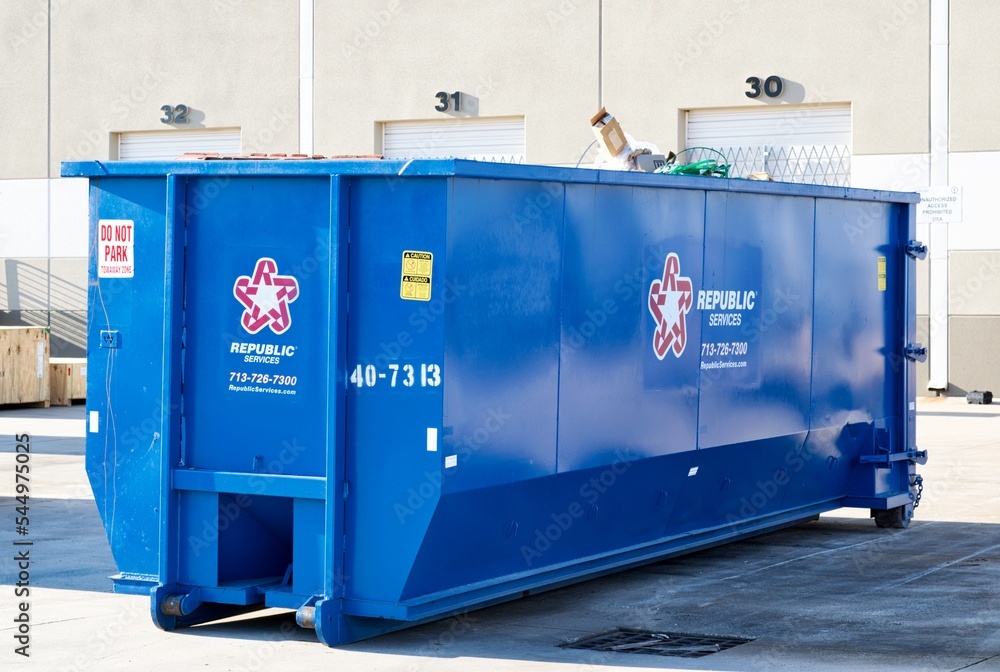Renting a dumpster includes several essential elements to take into account, consisting of choosing the right size based on job extent and waste kind, understanding debris restrictions and prohibited materials, and handling rental periods and logistics. Exact evaluation of rental duration and weight limitations is crucial to prevent additional fees, while awareness of local regulations and permitting requirements is very important to stay clear of penalties or elimination. With numerous prices and fees to take into account, consisting of shipment, disposal, and overweight charges, it's important to have a clear understanding of the whole procedure to guarantee an effective and affordable dumpster rental experience that meets your distinct needs.
Choosing the Right Dumpster Size
To identify the ideal dumpster size, take into consideration the scope of your job, consisting of the quantity and kind of waste to be removed.

For small-scale projects, such as clearing out a single space or minor restorations, a 10-15 lawn dumpster might be sufficient.
Larger projects, like building or demolition, might call for a 20-30 backyard dumpster or even larger.
It's likewise essential to think about any type of space constraints, such as narrow alleys or dilemmas, that might impact dumpster placement and accessibility.
Understanding Particles Restrictions
Debris constraints play a crucial function in making certain that dumpster rentals are utilized efficiently and responsibly. These constraints vary by dumpster rental business and neighborhood policies, so it's essential to understand what materials are permitted and prohibited in the dumpster.
Generally, most dumpster rental firms approve household trash, building and construction debris, and backyard waste. Nonetheless, hazardous materials like batteries, electronics, and chemicals are strictly banned because of environmental and safety and security concerns.
Additionally, some firms may have specific rules for items like tires, home appliances, and cushions, which might need special delivery or disposal. Recognizing these limitations in advance can save you from additional fees, penalties, and even having the dumpster rejected.
Be certain to ask your dumpster rental supplier regarding their certain debris restrictions and standards to ensure a smooth and compliant rental experience. By understanding these rules, you can successfully handle your waste disposal needs while also shielding the setting and community.
Rental Duration and Logistics
Most dumpster rental periods range from a couple piedmonttriaddumpsters.com of days to several weeks, depending on the range and period of the project.
It's essential to figure out for how long you'll need the dumpster to assure you have enough time to complete your project without sustaining additional fees Usually, leasings can be extended if required, yet it's important to communicate with the rental company beforehand to avoid any kind of penalties.
When planning your rental duration, consider the dimension of your job, the amount of debris you anticipate to generate, and the availability of the dumpster.
Keep in mind that dumpsters might have weight limits, so it is very important to estimate the weight of your waste precisely. Failure to do so might lead to added charges or perhaps dumpster removal before the rental duration is over.
Logistically, dumpsters are typically delivered and chosen up throughout company hours, so strategy appropriately to assure someone is readily available to accept the delivery and supervise the pickup.
Be sure to ask about any type of specific requirements or restrictions for dumpster placement on your building to stay clear of any type of concerns during the rental period.
Costs and Extra Fees
The general expense of a dumpster rental usually includes the rental period, dumpster size, and type of waste being dealt with. These elements can differ relying on the specific needs of your project, and understanding exactly how they influence the last cost is essential.
Some added costs to take into account consist of:

- Delivery and pickup charges: These fees cover the cost of delivering the dumpster to and from your site. Overweight fees: If the dumpster exceeds its weight capacity, you might be charged extra. Disposal fees: The price of getting rid of the waste can differ depending upon the kind and quantity. Fuel surcharges: Some rental business might add a gas additional charge to the final bill Late costs: Stopping working to return the dumpster in a timely manner can result in extra charges.
It's necessary to talk about these potential fees with your rental company ahead of time to stay clear of any kind of shocks when the final expense arrives.
Permitting and Zoning Laws
Project site logistics play a crucial role in dumpster rentals, as local regulations can considerably influence the rental process. Permitting and zoning laws, specifically, can be a difficulty if not correctly addressed.
Before renting a dumpster, it's vital to identify if any kind of licenses are required to position the dumpster on your home or in a details location. Failure to acquire the necessary permits can result in penalties, charges, and even dumpster removal.
To stay clear of such concerns, it's advised to consult with your local government or property owners association (if applicable) to understand the guidelines in your area.
Some municipalities might call for a license for dumpster placement, while others might have specific restrictions on dumpster size, kind, or placement. Furthermore, zoning laws may dictate where dumpsters can be put on your building, such as range from pathways or surrounding properties.